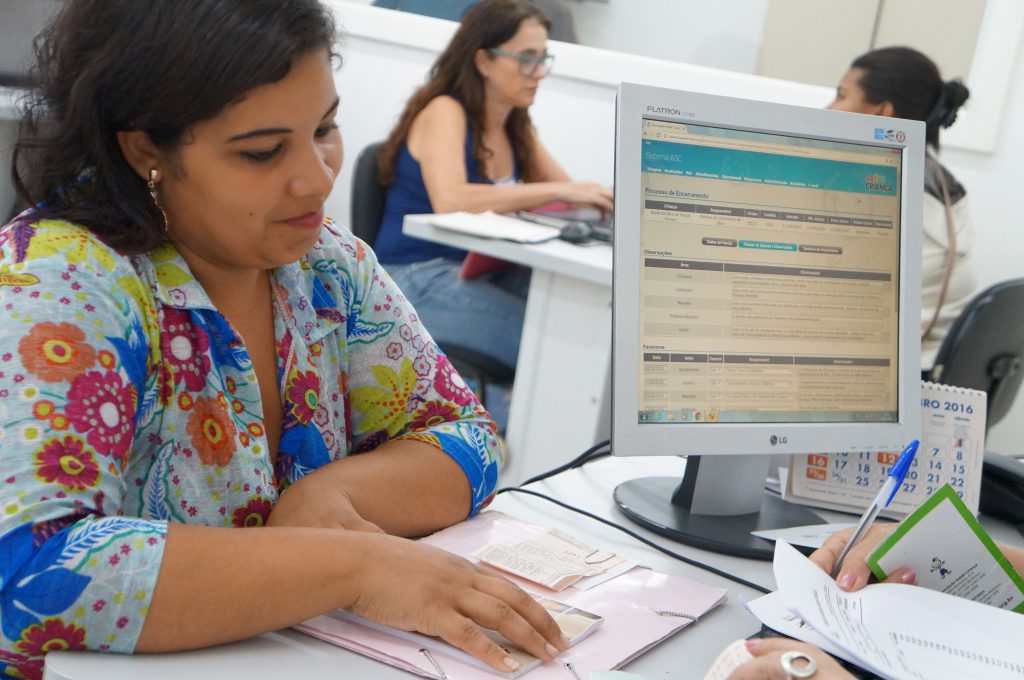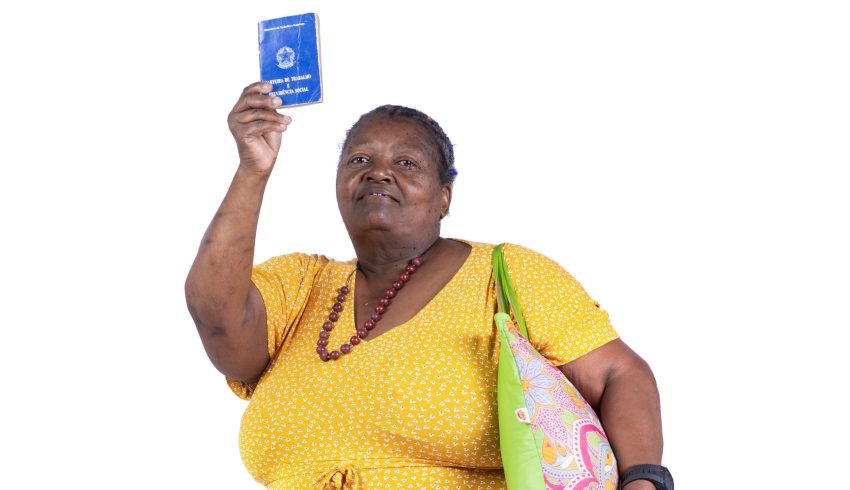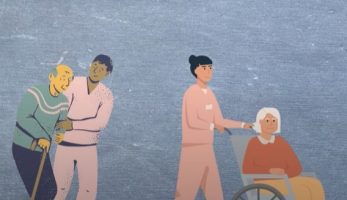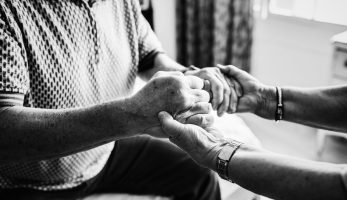Doctor Vera Cordeiro, founder of the Dara Institute, usually compares the Institute’s multidisciplinary service to the work of an orchestra, in which each specialist is a musician who needs to perform his/her role in harmony with the others, on the same score, with the same common objective.
Within this perspective, of the five areas of the Family Action Plan (PAF) — Health, Housing, Income, Education and Citizenship — Citizenship is the main driver. It is responsible for the families helped at every stage of the process, from welcoming to goodbye, adjusting the pace and making sure nothing goes wrong along the way.
The Citizenship team is made up of social workers who rely on the help of a group of volunteer lawyers for cases in need of legal aid. These are the people who give the first handshake and the first hug to the families who arrive at Dara in the mornings from Monday to Thursday, referred by our partner institutions.
Not knowing what to do to solve problems, which can range from a lack of documents to accessing public income transfer programs and purchasing medicines unavailable on the Public Health System, families find support and guidance at the Dara Institute.
In addition to carrying out the service, the Citizenship team shares with marginalized black women, in general those responsible for the family, that they have civil, political and social rights. Having a dignified life for yourself and your family is a right.

“Many women arrive here without seeing themselves as citizens who have rights, such is the invisibility in which they find themselves. They are invisible to society, they are never heard and their individuality is erased”, says Katiane Alves, a social worker in the Citizenship area.
Where does citizenship live?
One of the first measures of Citizenship team’s first steps is to guide and provide support on how the family can enroll in the Federal Government’s Single Registry for Social Programs, a requirement for the family to have access to social welfare and government income distribution programs.
Many families are not even aware that they have these basic rights. Or, if they know, they are frightened by the bureaucracy or live in places where there is little assistance from the government and have no idea where to go or who to look for to have access to these benefits.
Internet access is another barrier. Many families do not have access; and others are not familiar with internet technology. In some cases, illiteracy is the basic obstacle to accessing information. At the Dara Institute, all these barriers are overcome with the guidance offered to families, so that they know how to access their rights.
Exercising citizenship is not just talking about rights, but also duties. The Cadastro Único (Single Registry), for example, needs to be updated annually to ensure benefits are maintained. Families are taught the necessary tools and provided the information needed to deal with the process after the service at Dara ends, such as keeping their documents up to date — another basic requirement that they often find difficult to maintain.
From there, it is possible to enroll the family in federal programs such as Auxílio Brasil (Brazil Aid), a substitute for the Bolsa Família prgram, which entitles the family to a basic income, and the Benefício de Prestação Continuada (continual payment benefit), for the elderly and people with disabilities of any age, or even state benefits. and supplementary municipal income and free transport, for example.
Another important function of the Citizenship team is to provide legal advice in cases beyond the scope of social assistance. Each month, a partner law firm makes a group of lawyers available who, in a collective effort, help the families served by the Institute.
This team is prepared to provide any legal assistance, from answering simple legal questions about a contract or subpoena to advocating for free on causes such as alimony claims or demands for an expensive exam or treatment that the public health system should offer free of charge and does not.
The impact of empathy
All this is done little by little, while the family is supported by the other areas of the PAF, according to their specific needs. There is a method for this.
A year after joining Dara and the initial care plan, the family does the so-called reflection interview to highlight the advances made and challenges still pending. At this meeting, goals are also outlined for the continuity of care, detailing the necessary course corrections.
The simple act of listening to the mother who comes to the institute asking for help already has a positive impact. She is usually exhausted, tired from problems—hunger, unemployment, poor health, family conflicts—but also from having no one to share the load with.
When she limits herself to the problems she needs to solve, she becomes invisible. A fundamental part of the work is to rescue this mother’s self-esteem, allowing her to see herself as a citizen and appropriating her citizenship in multiple dimensions.
To be a citizen is to feel part of a society, to be aware of what it is to be a subject with rights — civil, political, social and human. It is knowing your duties and responsibilities as an integral part of the collective.
Many families arrive at Dara with issues of broken ties, be they community and/or with family members. An integral part of social work is to help resolve issues related to these ties.
Working on self-esteem and protagonism is, therefore, an important part of the process of (re)constructing a woman as a citizen. As a result, she starts to take care of herself in order to take care of her family.
At the end of the process, which can last up to two years, there is a closing ceremony, a final appointment in the same space where the family was first received. Professionals from all areas of the PAF and the families in attendance at the moment are invited to hear the family say goodbye.
When everything goes as planned, the most common expressions in these reports are: “I am ready, I am prepared, I am stronger”. These families are indeed ready to move on.




